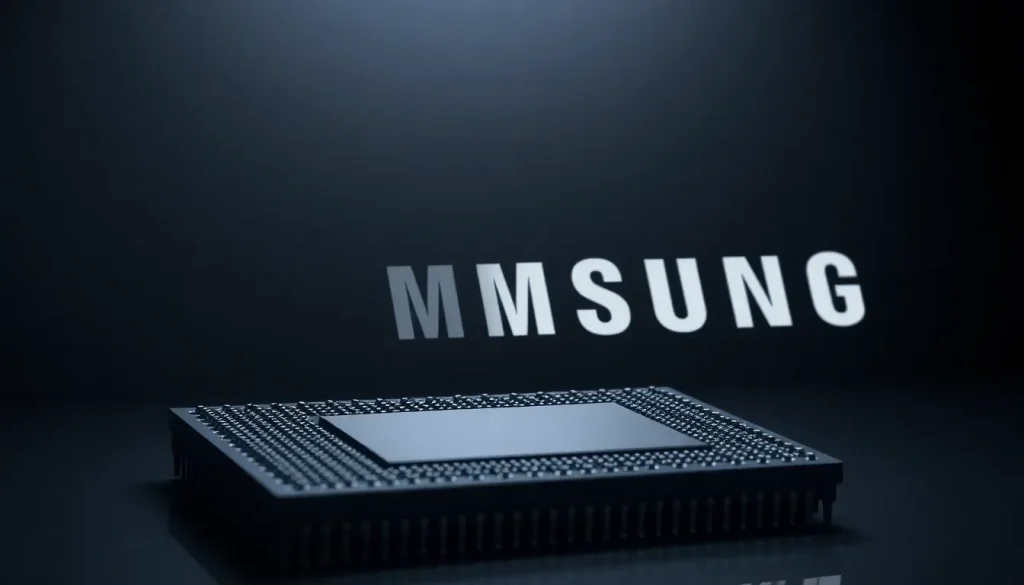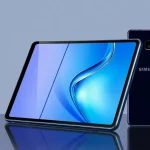Samsung Foundry's Success with Apple, NVIDIA, and Tesla Challenges TSMC

Samsung Foundry is making significant waves in the semiconductor industry, with recent partnerships highlighting its ambitions to challenge the dominance of TSMC. The Korean giant is not just expanding its client base; it is strategically positioning itself to redefine its role in the competitive landscape of chip manufacturing. This article explores the implications of Samsung's recent deals with major tech players and delves into the factors contributing to its evolving market position.
- Samsung's recent collaborations with tech giants signal a shift in the semiconductor landscape
- The competitive landscape: Why did Samsung lose to TSMC?
- Is Samsung bigger than TSMC? A closer look at market capitalization and production capacity
- Did Samsung overtake Intel to become the world's largest chip manufacturer?
- The future of Samsung Foundry: Strategic investments and technological advancements
Samsung's recent collaborations with tech giants signal a shift in the semiconductor landscape
In recent months, Samsung Foundry has entered into partnerships with industry leaders like Apple, NVIDIA, and Tesla. These collaborations represent not just a boost in capacity utilization for Samsung but also a significant step towards establishing itself as a formidable competitor to TSMC, the current market leader. According to a report from the Korea Herald, these strategic deals are expected to mitigate Samsung's operating losses and enhance its reputation in the semiconductor market.
As the semiconductor landscape evolves, companies are recognizing the need to diversify their supply chains to mitigate risks. With TSMC historically monopolizing the foundry market, Samsung's ability to produce advanced chips at the 2-nanometer level positions it as a critical alternative. Industry experts suggest that this diversification trend will likely pave the way for future business opportunities.
- Samsung's recent order from Apple involves the development of next-generation image sensors for upcoming devices, including the iPhone.
- The company is producing NVIDIA's Tegra T239 SoC, utilized in the Nintendo Switch 2, highlighting its capability in the 8nm process.
- Tesla has placed orders for both AI5 and AI6 chips, further indicating the tech industry's interest in Samsung's manufacturing capabilities.
The competitive landscape: Why did Samsung lose to TSMC?
Despite Samsung's advancements, it is essential to understand why it has historically lagged behind TSMC. TSMC has established itself as the leader in the foundry market, primarily due to its early investment in cutting-edge technology and its ability to scale production efficiently. Samsung, while capable, has faced challenges related to:
- Operational inefficiencies: Samsung's semiconductor division has struggled with internal coordination, affecting its responsiveness to market demands.
- Technological delays: Although Samsung has made significant strides, it has occasionally faced setbacks in its technology rollout schedules.
- Market perception: TSMC has cultivated a strong reputation as a reliable partner, which has solidified its client relationships over time.
Addressing these challenges requires a multifaceted approach from Samsung, focusing on operational excellence and fostering relationships with clients to enhance trust and reliability.
Is Samsung bigger than TSMC? A closer look at market capitalization and production capacity
When evaluating whether Samsung is bigger than TSMC, it's essential to consider various factors beyond just revenue. As of now, TSMC holds a dominant position in terms of market capitalization. However, Samsung's diverse portfolio, which includes consumer electronics and other sectors, contributes significantly to its overall size.
In terms of production capacity, TSMC is often viewed as the preferred choice for many clients due to its established infrastructure and expertise. Samsung, while growing, still has ground to cover in scaling its operations to match TSMC's output effectively.
Did Samsung overtake Intel to become the world's largest chip manufacturer?
In recent years, Samsung has been striving to surpass Intel in the semiconductor industry hierarchy. Recent reports indicate that Samsung may have indeed overtaken Intel in terms of overall chip revenue. This shift illustrates the growing demand for memory chips and Samsung's robust presence in this segment.
The implications of this development are profound. As Samsung continues to innovate and expand, it not only strengthens its position in the market but also challenges the traditional narrative surrounding chip manufacturing. The rise of AI and IoT applications further fuels the need for advanced chips, positioning Samsung favorably to capture a larger share of this burgeoning market.
To understand this competitive landscape better, it is worthwhile to consider the following:
- Investment in R&D: Samsung's commitment to research and development has been crucial in driving innovation and staying ahead of competitors.
- Diverse product offerings: Samsung's extensive range of products allows it to leverage economies of scale, reducing costs and increasing competitiveness.
- Strategic partnerships: Collaborations with companies like Apple and Tesla highlight Samsung's ability to adapt and respond to market demands effectively.
The future of Samsung Foundry: Strategic investments and technological advancements
As Samsung Foundry looks to the future, its emphasis on strategic investments will play a pivotal role in shaping its trajectory. The company has been ramping up its efforts to bring cutting-edge chip production to the U.S., with plans to establish a 2nm facility at its Taylor location in the coming years. This investment underscores Samsung's commitment to expanding its footprint and advancing its technological capabilities.
Moreover, Samsung is expected to introduce advanced packaging services in the U.S., enhancing its operational efficiency and opening new avenues for collaboration with local tech companies. By aligning its manufacturing capabilities with the evolving demands of the semiconductor industry, Samsung is well-positioned to challenge TSMC's dominance in the years to come.
For those interested in the dynamic between Samsung and TSMC, this recent video provides insightful commentary on the competitive landscape:
In conclusion, Samsung's recent wins with industry giants like Apple, NVIDIA, and Tesla not only reflect its resilience but also indicate its determination to reshape the semiconductor landscape. Through strategic partnerships and investments in technology, Samsung is poised to challenge TSMC's long-standing dominance and redefine its role in the global chip market.




Leave a Reply